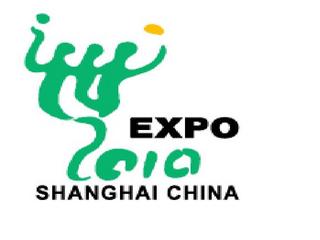The legal issue is the degree to which law limits company_s discretion in licensing its intellectual property.
Published:
14 February 1999 y., Sunday
On Feb. 23, the curtain goes up on the other big high-tech trial in Washington, D.C.--the Federal Trade Commission_s case against Intel Corp. Compared with the Microsoft Corp. trial, this dispute will seem less dramatic. On its face the case addresses concerns about Intel_s contracting policies; the real legal issue, however, is the degree to which antitrust law limits a tech company_s discretion in licensing its intellectual property. The speed with which new technology comes to market depends upon the industry_s ability to sidestep intellectual property conflicts using licensing and cross-licensing agreements; thus, any limits the FTC imposes on the right to negotiate and enter into these agreements could affect the industry significantly. Intellectual property (patents, copyrights and trademarks) is the only truly bankable product the high-tech industry produces. In many instances, its value can be realized only when it is combined through licenses and cross-licenses with intellectual property owned by others. Often thousands of technology patents, copyrights and trademarks held by hundreds of companies are licensed and cross-licensed to produce a single product. Given the thicket of intellectual property rights in this industry, even giants such as Intel, Microsoft and Compaq Computer Corp. cannot deploy new technologies without first licensing intellectual property. Intel, like many high-tech companies, regularly conditions the granting of a license to its technology on the licensee_s willingness to grant Intel a reciprocal cross-license to use the licensees technology. This has created a highly efficient, barter-based market that has helped clear away the potential infringement claims that might delay the deployment of new technology. The FTC became involved when one of the participants refused to barter. Workstation manufacturer Intergraph Corp. (Huntsville, Ala.), which had acquired the Clipper RISC (reduced instruction set computing) processor from National Semiconductor Corp., refused to cross-license certain Clipper-related technologies to Intel -even though Intergraph had licensed Intel_s technology. Intergraph eventually sued Intel for patent infringement, and Intel revoked Intergraph_s license. Other Intel dustups involving Compaq and Digital Equipment Corp. apparently prompted the FTC to act.
Šaltinis:
Internet
Copying, publishing, announcing any information from the News.lt portal without written permission of News.lt editorial office is prohibited.
The most popular articles
 The European Parliament's proposal for its own operational budget for 2011 includes the financing of measures in preparation for enlargement with Croatia.
more »
The European Parliament's proposal for its own operational budget for 2011 includes the financing of measures in preparation for enlargement with Croatia.
more »
 Links between business and the academic world need to be strengthened but higher education institutions must retain their autonomy and public support, says a resolution adopted on Thursday by the European Parliament.
more »
Links between business and the academic world need to be strengthened but higher education institutions must retain their autonomy and public support, says a resolution adopted on Thursday by the European Parliament.
more »
 The Spanish Minister of Economy and Finance, Elena Salgado, will present the additional fiscal tightening measures set out by the Spanish Government to her eurozone (Eurogroup) counterparts on Monday; the measures were required by Spain’s European partners as a condition of approving the plan to bolster the euro on 9 May.
more »
The Spanish Minister of Economy and Finance, Elena Salgado, will present the additional fiscal tightening measures set out by the Spanish Government to her eurozone (Eurogroup) counterparts on Monday; the measures were required by Spain’s European partners as a condition of approving the plan to bolster the euro on 9 May.
more »
 The European Commission has opened an in-depth investigation under EU State aid rules into capital injections destined to two subsidiaries of state owned company Elan Skupina in Slovenia.
more »
The European Commission has opened an in-depth investigation under EU State aid rules into capital injections destined to two subsidiaries of state owned company Elan Skupina in Slovenia.
more »
 GDP growth in the EU expected to gradually pick up, though recovery less robust than past upturns.
more »
GDP growth in the EU expected to gradually pick up, though recovery less robust than past upturns.
more »
 The EESC tabled its opinion on the regulation of alternative investment funds, such as hedge funds and private funds. Although endorsing the much debated proposal of the European Commission, the EESC calls for uniform risk data provision for all such funds and emphasizes their responsibility in triggering the crisis.
more »
The EESC tabled its opinion on the regulation of alternative investment funds, such as hedge funds and private funds. Although endorsing the much debated proposal of the European Commission, the EESC calls for uniform risk data provision for all such funds and emphasizes their responsibility in triggering the crisis.
more »
 Concluding the process and deciding on the schedule for releasing the funds agreed on for Greece, as well as examining and learning lessons from the crisis for the governance of the eurozone, will be the focus of the discussions of the heads of state and government at the meeting in Brussels this Friday.
more »
Concluding the process and deciding on the schedule for releasing the funds agreed on for Greece, as well as examining and learning lessons from the crisis for the governance of the eurozone, will be the focus of the discussions of the heads of state and government at the meeting in Brussels this Friday.
more »
 The EU pavilion at the world expo in Shanghai marks the first time the EU has presented itself to a large Chinese audience.
more »
The EU pavilion at the world expo in Shanghai marks the first time the EU has presented itself to a large Chinese audience.
more »
 Shanghai's World Expo offers visitors plenty of fun offering bizarre things to do at over 200 pavillions competing for attention.
more »
Shanghai's World Expo offers visitors plenty of fun offering bizarre things to do at over 200 pavillions competing for attention.
more »
 The European Investment Bank (EIB) is providing a loan of EUR 150 million to MVM Zrt. for the capacity increase and the extension of a high-voltage transmission network, partly constituting priority axes of the Trans-European Energy Network (TEN-E) in Hungary.
more »
The European Investment Bank (EIB) is providing a loan of EUR 150 million to MVM Zrt. for the capacity increase and the extension of a high-voltage transmission network, partly constituting priority axes of the Trans-European Energy Network (TEN-E) in Hungary.
more »